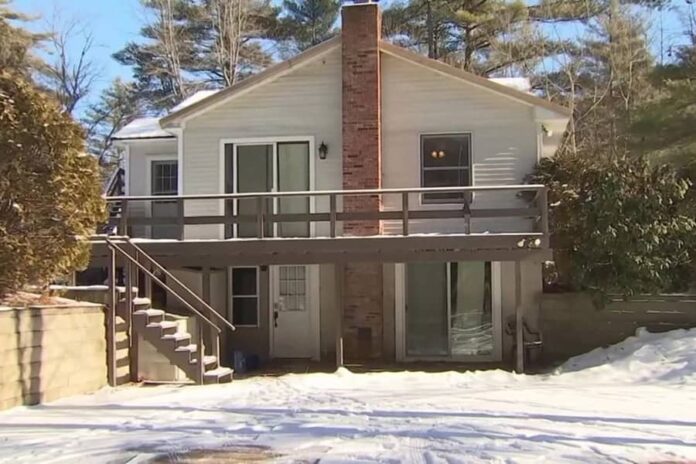WAKEFIELD, N.H. — A Massachusetts community is mourning the deaths of four family members after an apparent exposure to carbon monoxide at a New Hampshire vacation home on Christmas Day.
Family members asked police to conduct a welfare check on the Goldsteins after they didn’t show up to a holiday gathering as expected. At 4:21 p.m. Wednesday, authorities said police responded to the home in Wakefield, about 45 miles northeast from the state capital city of Concord. Officers found four deceased adults in the house.
The victims are identified as Matthew Goldstein, 52, Lyla Goldstein, 54, Valerie Goldstein, 22, and Violet Goldstein, 19, all of Newton, Massachusetts.
Matthew Goldstein was an eighth-grade teacher at the Edith C. Baker School in Brookline. Lyla Goldstein worked for Microsoft Corp. for the past 15 years. Valerie Goldstein was a recent graduate of Syracuse University and Violet was a first-year student at the Rhode Island School of Design.
The New Hampshire Office of the Chief Medical Examiner has determined Matthew Goldstein’s cause of death was carbon monoxide poisoning, and the manner is pending. The cause and manner of death of Lyla Goldstein, Valerie Goldstein, and Violet Goldstein remain pending.
A joint investigation is being conducted, according to New Hampshire State Fire Marshal Sean P. Toomey, Wakefield Fire Rescue Chief Todd Nason and Wakefield Police Chief Michael Fenton.
Efforts to determine the cause of the suspected carbon monoxide leak remain ongoing, and investigators are continuing to inspect the home’s gas heating system. Officials said no working carbon monoxide alarms have been found in the home.
Co-worker says Matt Goldstein made every kid feel safe
Yasameen Sharif, a co-worker of Matthew Goldstein, said she believes the family owned the New Hampshire home for about six years, and that she had attended teacher weekends there that Goldstein had hosted.
“He was the most amazing snow-sculpture maker,” Sharif wrote in an email to Wicked Local, part of the USA TODAY Network, in describing Goldstein.
“His Halloween costumes were legendary. He cared so much about kids and making sure that every kid felt safe in his classroom. He was a cancer survivor, which I think impacted how positive he was — he always saw the good in people and situations. He made everyone around him a better person. He was a stay-at-home dad for 10 years and his girls worshipped him — and he them.”
Brookline Superintendent of Schools Linus Guillory Jr. said in a statement that Goldstein’s “dedication to inspiring students and shaping young minds has left an indelible mark on all who had the privilege of knowing him.”
Carbon monoxide poisoning kills 400 people in US each year
According to the Centers for Disease Control and Prevention, carbon monoxide poisoning kills more than 400 people each year in the United States on average and causes more than 100,000 Americans to visit the emergency room.
Carbon monoxide is an odorless and colorless gas that can build up in enclosed or partially enclosed spaces, poisoning people and animals who breathe in too much, the CDC says. According to the health agency, inhaling carbon monoxide prevents the body from receiving and using oxygen properly and disrupts “respiration at the cellular level,” which can harm organs, including the heart and brain.

Experts from the CDC recommend installing battery-operated or battery back up carbon monoxide monitors in sleeping areas in homes and checking the detectors regularly to ensure they are working properly.
The agency also recommends the following safety tips to prevent carbon monoxide poisoning:
- Never use a generator in enclosed spaces, including in your home and garage. Place generators outside and more than 20 feet from your home, doors and windows.
- Have your heating system, water heater, and other gas-, oil- or coal-powered appliances serviced yearly by technicians.
- Remember to service any appliances in your home that emit gas.
- Clean and check your chimneys every year.
- Never use a gas oven to heat a home.
- Never burn charcoal indoors.
- Never run a vehicle inside an attached garage. For detached garages, leave the door open to allow air to flow.
- Buy only equipment carrying the seal of a national testing agency, such as Underwriters Laboratories.
By Minnah Arshad and Joanna K. Tzouvelis, USA TODAY

